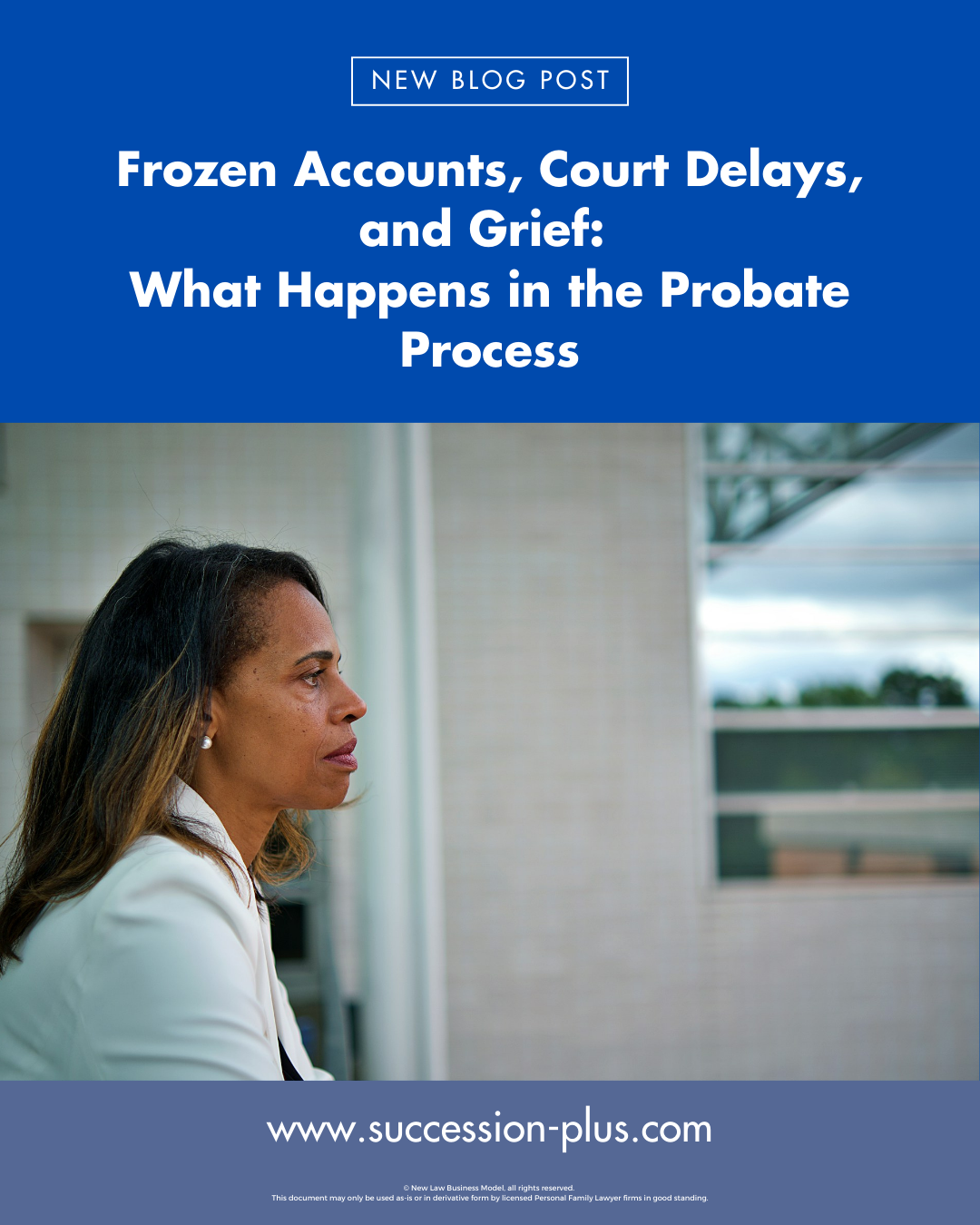The Surprising Connection Between Meal Planning and Estate Planning Done the Right Way

My colleague told me a story recently. Her son moved into his first apartment at college and had to go grocery shopping on his own for the first time. After he got back from the store, he called her in disbelief: “Food is so expensive! Can you help me figure out how to meal plan so I can shop strategically?” Her 19-year-old was diving head-first into adulting - and beginning to evaluate his relationship with time and money.
This story made me pause. I realized that meal planning is about so much more than food—it’s about how you manage your time, money, and energy. It reflects your values, reveals what matters most, and, in many ways, shows how you approach planning for the future. That connection is worth exploring, because the lessons from meal planning can guide and support your loved ones after you’re gone.
In this article, you’ll discover:
- Why meal planning style reveals your deepest values.
- How protecting your T.E.A.M. resources—Time, Energy, Attention, and Money—applies to both dinner and estate planning.
- Practical strategies to make meal planning (and estate planning) work.
Let’s start by looking at two families who approach meal planning very differently.
Scramble vs. Strategy
The Smith family wings it every week. Maria finds herself at the grocery store wandering the aisles, tossing random items into the cart. By Wednesday, she’s ordering takeout because nothing is prepped. By Thursday, the kids are cranky, the budget is blown, and they’re eating cereal for dinner.
The Jones family, on the other hand, spends 20 minutes every Sunday planning. Sam checks the calendar while Mike makes a list. Tuesday is soccer practice (crockpot night). Wednesday is date night (leftovers for the kids). Sunday is family dinner with grandparents. They plan seven dinners, check the pantry, and make a focused grocery list. Their budget stays on track, meals fit their schedule, and they even have backup plans.
What’s the difference?
The Smiths treat time and money as if they’re unlimited. They spend impulsively and reactively, valuing convenience over intentionality. The Joneses recognize that both time and money have limits. They protect family dinners, plan for busy nights, and steward their resources wisely.
And here’s the bigger truth: your approach to meal planning reveals the same values you bring to protecting your family’s future.
How Meal Planning Reveals Your Values
When you sit down to plan meals, you’re doing more than planning what’s for dinner, then shopping strategically. You’re showing your relationship with time, money, and values. For example:
- Planning around schedules shows you value time together.
- Prepping ahead for busy nights shows you respect your energy.
- Shopping with a list shows you value money as something to use wisely.
- Using recipes passed down to you, or your weekly breakfast of Sunday pancakes shows you value connection and traditions.
These aren’t just food choices. They’re value choices. And they reflect the same intentionality—or lack thereof—that carries into your financial and legacy planning.
When families don’t plan, the result is scrambling, stress, and wasted resources. That’s true whether it’s dinnertime or when your loved ones have to deal with your affairs after you’re gone.
Your T.E.A.M. Resources: Time, Energy, Attention, and Money
My mentor and Personal Family Lawyer® founder, Ali Katz, teaches about the importance of protecting your T.E.A.M. resources—Time, Energy, Attention, and Money. And here’s one of the most important lessons: Money is your only renewable resource. You can always make more of it. But your time, energy, and attention? Once they’re gone, you never get them back.
Meal planning is one of the simplest ways to protect your T.E.A.M. resources:
- Time: Fewer last-minute store runs.
- Energy: Less stress deciding what’s for dinner.
- Attention: More focus on family, less on daily logistics.
- Money: Less waste, fewer takeout bills.
Life & Legacy Planning works the same way. It saves your loved ones’ T.E.A.M. resources when it matters most:
- Time: They avoid months or years in the court process, and waiting for your assets to be available rather than stay frozen after you die.
- Energy: They don’t waste effort battling conflict among your loved ones.
- Attention: They can focus on grieving and healing, rather than spinning their wheels trying to figure out what to do..
- Money: They save thousands by avoiding probate costs, taxes, and disputes, and trying to clean up a legal and financial mess you left behind.
And here’s something most people don’t realize: working with me, as a Personal Family Lawyer, saves you T.E.A.M. resources twice. The first time is now, because I make the planning process easy and guide you step by step. And again later, because the right plan prevents wasted money, time, and stress for your family after you’re gone. Instead, I’ll be there to guide them through every step of the process.
Practical Strategies That Work
The good news is that both meal planning and estate planning become much easier when you have the right system. Here are a few practical steps for the kitchen—and how they mirror what makes a Life & Legacy Plan work:
Create a Master List.
- Meal planning: Write down 7-10 meals your family loves and rotate them.
- Estate planning: Create an inventory of assets so nothing gets lost and turned over to the Department of Unclaimed Property.
Match Plans to Real Life.
- Meal planning: Choose meals that fit your week (crockpot for busy nights, leftovers for soccer night).
- Estate planning: Align your plan with your particular family dynamics, finances, and values.
Shop with a List.
- Meal planning: A clear list saves money and prevents waste.
- Estate planning: A Life & Legacy Plan ensures your loved ones don’t waste their T.E.A.M. resources, and that they have support and counsel after you die.
Have Backup Options.
- Meal planning: Keep three easy “emergency meals” (like pasta, quesadillas, or breakfast-for-dinner).
- Estate planning: Build contingencies—guardianship backups, trustee alternates, and healthcare proxies.
Review and Adjust Regularly.
- Meal planning: Revisit on an ongoing basis—what worked? What didn’t? Adjust.
- Estate planning: Review at least every three years so your plan stays current with your life circumstances and the law, and works when your loved ones need it to.
When you use these systems consistently, dinner stops being a scramble—and so does your loved ones’ future.
Why Planning Ahead is the Greatest Gift
Here’s what families often don’t realize: when you don’t plan meals, you teach your children that scrambling is normal. When you don’t plan for the future, you teach your loved ones that their security isn’t worth intentional planning.
But when you do plan the right way with a Life & LegacyPlan, you give your loved ones the gift of clarity. You protect their time, their energy, their attention, and their money—so they can focus on what really matters: love, connection, and carrying your values forward. You also give yourself peace of mind, knowing that you’ve done the right thing by the people you love most.
That’s why Life & Legacy Planning is about so much more than creating a set of documents. It’s about creating a system that works when your family needs it, reflecting the same values you live by every day.
Bringing It All Together: Your Next Step
Meal planning may seem small, but it’s a powerful act of love. It saves money, reduces stress, and protects your most precious T.E.A.M. resources. And it reveals something profound: your relationship with money and time is shaping your family’s future right now.
As a Personal Family Lawyer, my Life & Legacy PlanningⓇ process does the same thing on a much bigger scale. It ensures that your values—about money, time, family, and love—continue to guide your loved ones long after you’re gone. Working with me makes the process simple now and saves your loved ones time, energy, attention, and money later.
If you’ve ever felt the relief of having a meal plan ready for the week, imagine giving your loved ones that same peace of mind when it comes to their future.
Book a 15-minute discovery call with me today, and let’s create a Life & Legacy Plan that protects your resources and your legacy for the people you love most.
Schedule call by clicking HERE
This article is a service of Bret Christiansen, a Personal Family Lawyer Firm. We don’t just draft documents; we ensure you make informed and empowered decisions about life and death, for yourself and the people you love. That's why we offer a Life & Legacy Planning Session, during which you will get more financially organized than you’ve ever been before and make all the best choices for the people you love. You can begin by calling our office today to schedule a Life & Legacy Planning Session.
The content is sourced from Personal Family Lawyer® for use by Personal Family Lawyer firms, a source believed to be providing accurate information. This material was created for educational and informational purposes only and is not intended as ERISA, tax, legal, or investment advice. If you are seeking legal advice specific to your needs, such advice services must be obtained on your own separate from this educational material.





